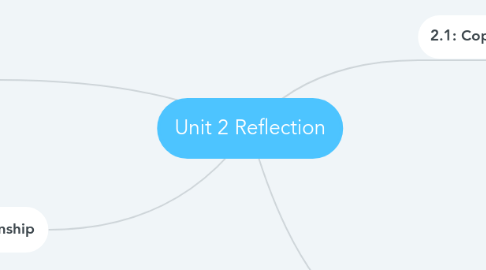
1. 2.3: Universal Design for Learning (UDL)
1.1. Main Principles of UDL. 1. Representation - presenting information in a multi modal way including hands on learning
1.1.1. 2. Action and Expression - Allowing students to interact with lessons and display their knowledge for assessments in various ways could be a test or a project or many other things
1.1.1.1. 3. Engagement - This is how teachers motivate students and get them excited to learn, this could include letting the students learn writing by picking a topic that interests them, also encourages moving around the classroom
2. 2.4: Digital Citizenship
2.1. Biggest Takeaways: Digital Literacy which is a continuous education on how to use and expand your knowledge on digital technologies
2.1.1. Digital Etiquette: This involves using technology in a respectful and responsible away, encouraging using the internet and social media to connect with people and build each other up rather than tear them down.
2.1.1.1. Digital Security: Protection of information on the internet, encouraging using different passwords for different websites and not sharing any personal information online
3. 2.1: Copyright & Validity
3.1. Copyright is the exclusive legal right, given to an originator or an assignee to print, publish perform, film or record literary, artistic, or musical material, and to authorize others to do the same
3.2. Plagiarism is taking someone else's work or ideas and passing the off as one's own
3.3. Validity of Resources: When evaluating whether a source is reliable or not, ask yourself who published this article, why they did, and where they did
3.4. Relevance of Research: Value, Speed and Timeliness, Authority, Aesthetic, Meaning
4. 2.2: Theoretical Foundations of Learning
4.1. Behaviorism includes animal and human learning but discounts mental activity.
4.1.1. The theory that learning is acquiring a new behavior.
4.1.1.1. Includes Classic Conditioning & Operant Conditioning.
4.2. Cognitive Perspectives includes Bloom's Taxonomy. Cognitive domain (intellectual), Effective domain (emotional), Psychho-motor domain (physical)
4.2.1. Types of Knowledge include: Declarative Knowledge (knowing what), Procedural Knowledge (knowing how), Strategic Knowledge (knowing when), Meta Cognitivie Knowledge (self awareness).
